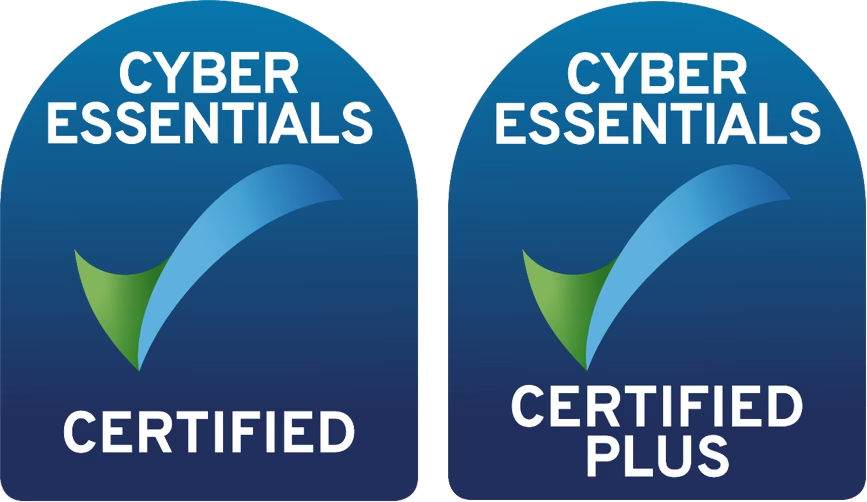Understanding the Traffic Light System of Password Strength
When it comes to digital security, understanding the traffic light system of password strength is crucial. This simple yet effective method uses familiar colours to indicate how secure your chosen password is.
By familiarising yourself with this password strength traffic light system, you’re taking a significant step towards bolstering your online security and you’ll be well on your way to mastering the basics of digital security.
Why ‘Green’ Passwords are Crucial in Today’s Cyber Landscape
As cybersecurity threats continue to evolve, our first line of defence against potential data breaches is often a robust, ‘green’ password. But what exactly makes a password ‘green’, and why is it so crucial?
How To Create Secure Green Passwords
A ‘green’ password is one that’s not only complex but also unique to each account. It’s a combination of uppercase and lowercase letters, numbers, and special characters, ideally 12 characters or longer. This complexity makes it exponentially more difficult for hackers to crack, significantly bolstering your online account protection.
Consider this: a simple eight-character password can be cracked in mere hours, whereas a 12-character complex password could take centuries to decipher. This stark difference underscores why upgrading to ‘green’ passwords is non-negotiable in our current cyber landscape.
In essence, ‘green’ passwords are your personal cybersecurity shield. They’re a simple yet powerful tool in your arsenal against the ever-present threat of cyber attacks. By adopting this practice, you’re not just protecting your data; you’re safeguarding your digital identity in an increasingly interconnected world.
A password should be at least 12 characters long or more.
- A strong password should include:
- A mix of uppercase and lowercase letters
- Numbers
- Special characters
Ensure you use a unique password for each online account.
Avoid including:
- Personal information (e.g. birthday, address)
- Information accessible on social media (e.g. children’s or pets’ names)
- Consecutive letters or numbers (e.g. ABCD, 1234)
- The word “password”
- Repeated letters or numbers
Common Password Mistakes That Keep You in the Red
Many users unknowingly make password mistakes that leave their accounts vulnerable to cyberattacks. Here are some common errors to avoid:
- Using Weak Passwords: Examples include “password,” “123456,” and “qwerty”12.
- Reusing Passwords: Using the same password across multiple accounts increases the risk of a breach.
- Including Personal Information: Avoid using easily guessed details like your name, birthdate, or pet’s name.
- Ignoring Two-Factor Authentication (2FA): Not enabling 2FA leaves your accounts more susceptible to unauthorized access.
- Storing Passwords Insecurely: Writing them down or saving them in unencrypted files can lead to easy access for hackers.
By addressing these vulnerabilities, you can significantly enhance your password security and protect your personal information.
The Importance of Password Security in Business
Failing to use secure passwords can lead to several serious consequences:
- Privacy Breaches: Weak passwords can allow hackers to compromise your privacy. For instance, if you don’t change the default password on your IP security cameras, hackers could potentially access your account and monitor you in your business.
- Business Risks: For businesses, weak passwords can lead to disinformation campaigns, data theft, and ransom demands. Hackers may share sensitive data with competitors or hold it for ransom, causing significant harm to the company’s reputation and finances.
- Compliance Requirements: Businesses must ensure remote workers adhere to password security policies to comply with data protection regulations.
The Impact of Stolen Passwords on Businesses in the UK
In recent years, the impact of stolen passwords on UK businesses has been significant. According to the Cyber Security Breaches Survey by the UK government.
| Year | Percentage of Businesses Experiencing Cyber Breaches | Average Cost of Most Disruptive Breach |
| 2022 | 32% | £1,100 |
| 2023 | 32% | £1,100 |
| 2024 | 50% | £1,205 |
The costs associated with cyber breaches typically involve several key areas:
- Direct Financial Losses: This includes money stolen directly from the business or costs incurred due to fraudulent transactions.
- Operational Disruption: Breaches can cause significant downtime, affecting productivity and business operations.
- Incident Response: Costs related to identifying, containing, and mitigating the breach, including hiring cybersecurity experts.
- Legal and Regulatory Fines: Non-compliance with data protection regulations can result in hefty fines.
- Reputation Damage: Loss of customer trust can lead to decreased sales and long-term brand damage.
- Notification Costs: Informing customers and stakeholders about the breach, which may include setting up call centers or providing credit monitoring services.
- Recovery Costs: Restoring systems and data, which might involve new hardware, software, or additional security measures.
These costs can add up quickly, making it crucial for businesses to be mindful of the use of strong passwords.
The Role of Password Managers in Maintaining ‘Green’ Status
The Role of Password Managers in Maintaining ‘Green’ Status
For UK businesses striving to maintain a ‘green’ status, the adoption of password managers is crucial.
These tools offer numerous benefits, including secure password storage and the ability to generate strong, unique passwords for each account.
By using password manager benefits like multi-device password sync, employees can access their credentials securely from any location, reducing the risk of breaches.
Additionally, password generator tools ensure that passwords are complex and less susceptible to hacking attempts.
Implementing these solutions not only enhances security but also supports sustainable business practices by minimizing the need for paper-based password management systems.
Regular Password Audits: Keeping Your Business in the Green
Regular password audits are essential for maintaining robust cybersecurity and ensuring your business stays secure.
By conducting thorough password health checks, updating old passwords and implementing a strategic password rotation policy, you can significantly reduce the risk of unauthorised access.
Ongoing security maintenance is crucial to adapt to evolving threats and keep your defences strong.
At Speedster IT, we are committed to providing top-notch IT support in London, keeping you informed with the latest news and insights on cybersecurity through our blog.

With over 15 years at Speedster IT, I’ve built a career around helping businesses navigate the evolving world of technology. I publish all the content for the IT Support London Blog and Cyber Security Blog, where I share practical insights on infrastructure upgrades, cybersecurity trends, and smart IT strategies for growing companies.
